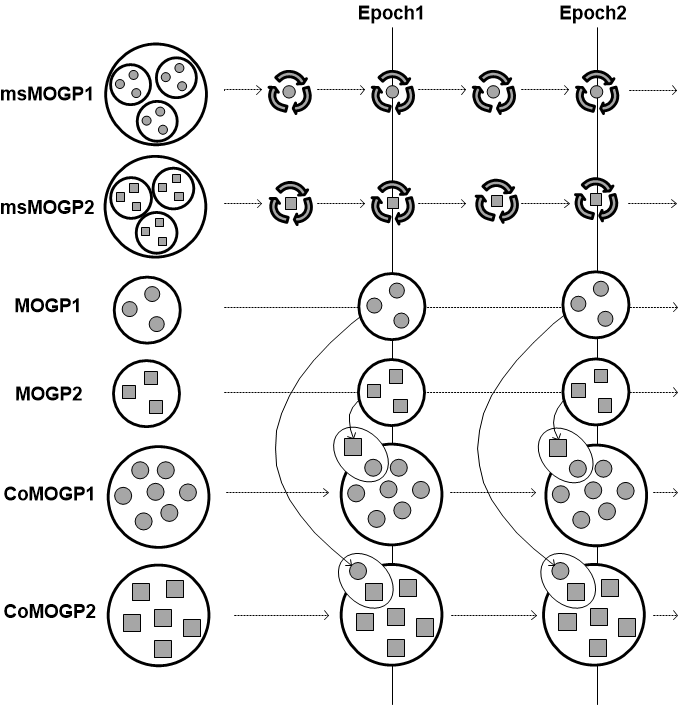
Evolving diverse ensembles using genetic programming has recently been proposed for classification problems with unbalanced data. Population diversity is crucial for evolving effective algorithms. Multilevel selection strategies that involve additional colonization and migration operations have shown better performance in some applications. Therefore, in this paper, we are interested in analysing the performance of evolving diverse ensembles using genetic programming for software defect prediction with unbalanced data by using different selection strategies. We use colonization and migration operators along with three ensemble selection strategies for the multi-objective evolutionary algorithm. We compare the performance of the operators for software defect prediction datasets with varying levels of data imbalance. Moreover, to generalize the results, gain a broader view and understand the underlying effects, we replicated the same experiments on UCI datasets, which are often used in the evolutionary computing community. The use of multilevel selection strategies provides reliable results with relatively fast convergence speeds and outperforms the other evolutionary algorithms that are often used in this research area and investigated in this paper. This paper also presented a promising ensemble strategy based on a simple convex hull approach and at the same time it raised the question whether ensemble strategy based on the whole population should also be investigated.